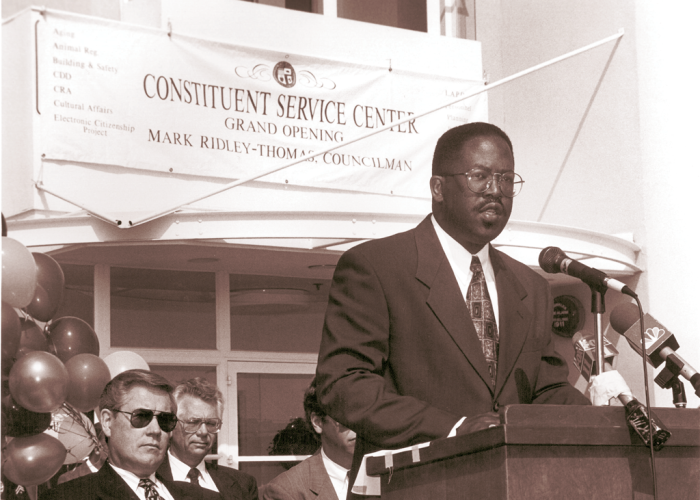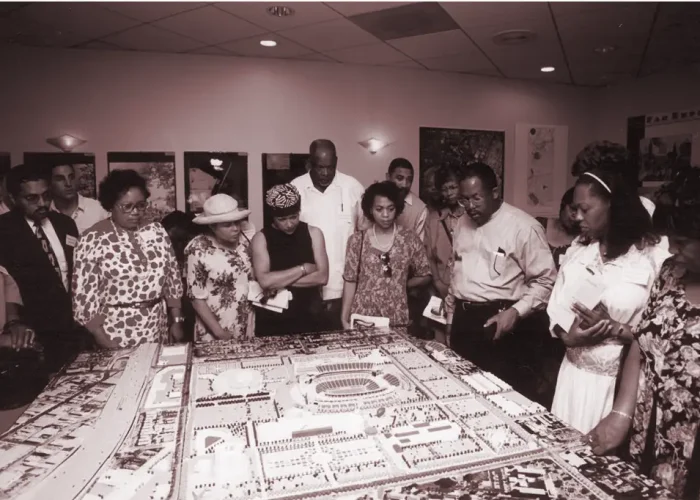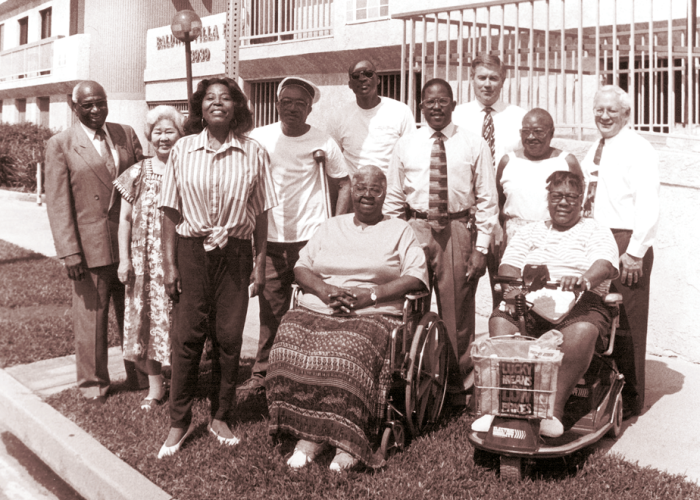From Civil Unrest to Civic Awakening:
The History of the Empowerment Congress
Empowerment Congress, with a straightforward motto: Educate, Engage, Empower
In June 1991, amid rising tensions in Los Angeles following the police beating of Rodney King and the killing of Latasha Harlins, Mark Ridley-Thomas was elected to the City Council. South LA faced chronic disinvestment, unemployment, and police brutality, but residents were ready to organize for change.
Ridley-Thomas responded by founding the Empowerment Congress, a grassroots effort to channel local activism into civic engagement. Initially focused on police accountability, the Congress quickly expanded to neighborhood issues like zoning, public safety, and economic development. Its work led to major changes, including new ordinances, city reforms, and the establishment of LA’s Department of Neighborhood Empowerment.
After the 1992 unrest, the movement grew. Residents helped shape policy on everything from land use to stray animals and local infrastructure. Over the years, the Empowerment Congress has played a key role in projects like the Crenshaw/LAX rail line and the reopening of Martin Luther King Jr. Medical Center.
Today, the Congress continues to fight racial and economic disparities, using tools like annual summits, partnerships, and community training programs to educate, engage, and empower residents across LA County.
More than ever, the Empowerment Congress is needed to equip residents to put forth an agenda representing interests.
A perfect example of the need for the Empowerment Congress’s vigilant activism is the development of the Crenshaw/LAX light rail line. Empowerment Congress members were the foundation of a successful effort by then-Supervisor Ridley-Thomas to win MTA approval for a Crenshaw rail line, a long-deferred dream of former Mayor Tom Bradley and U.S. Representatives Julian Dixon and Diane Watson.
The rail line is now reality and, through advocacy in partnership with Empowerment Congress, a station at Leimert Park is part of that community resource. While construction remains underway on the line, the inclusion of a Leimert Park station is just one of the many outcomes that are a result of strong civic engagement and reciprocal accountability.
The Empowerment Congress’s reach may continue to evolve, but its founding purpose remains: Educate, Engage and Empower.


